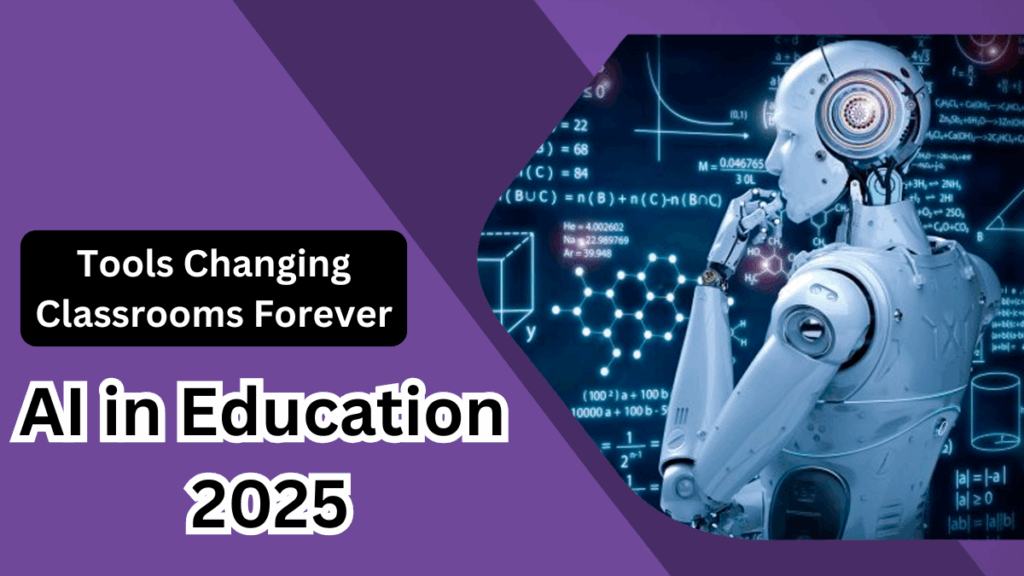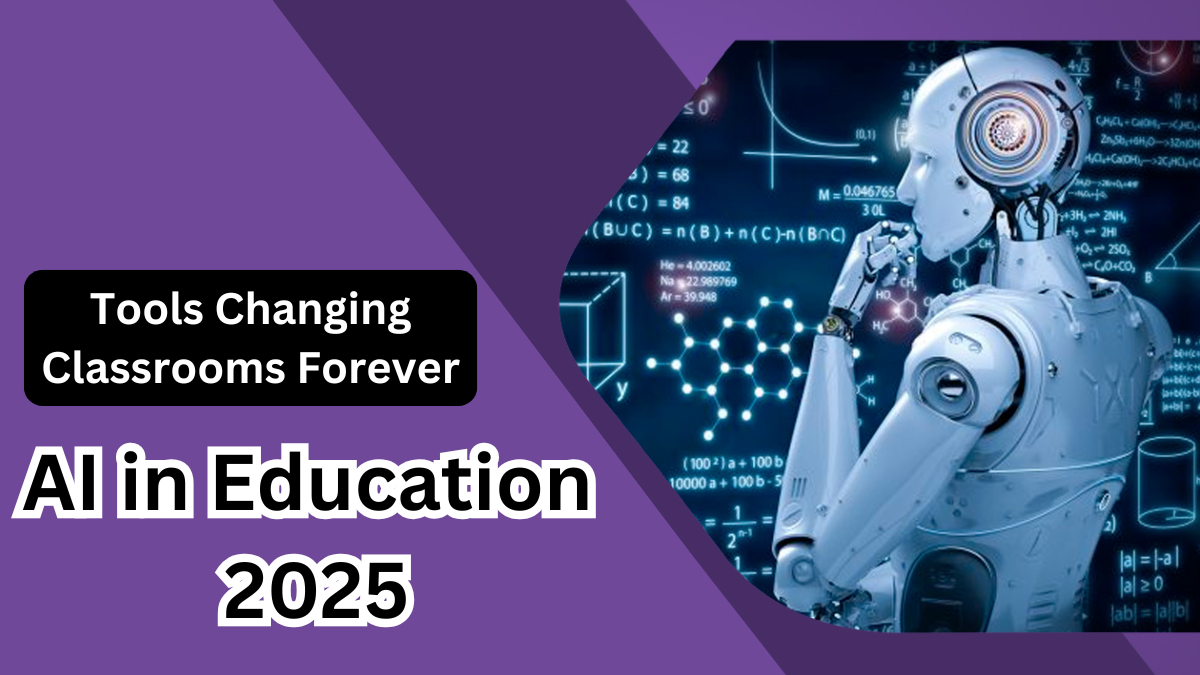The classroom of tomorrow is being reshaped today. AI in Education 2025 promises to redefine how students learn, teachers teach, and educational institutions operate. From personalized learning to intelligent tutoring systems, Artificial Intelligence is becoming a central part of digital learning tools that enhance engagement, efficiency, and outcomes.

How AI is Transforming Classrooms
AI is no longer a futuristic concept in education—it’s here, changing the way classrooms function. Key areas of transformation include:
-
Personalized Learning: AI algorithms analyze student performance and adapt lessons to match individual learning styles.
-
Automated Grading: Teachers save hours as AI handles routine grading for assignments and tests.
-
Intelligent Tutoring: Digital learning tools powered by AI offer 24/7 support, helping students understand complex topics at their own pace.
-
Administrative Assistance: AI streamlines scheduling, attendance tracking, and reporting, freeing teachers to focus more on teaching.
Top Digital Learning Tools Powered by AI
| Tool Name | Purpose | Key Feature |
|---|---|---|
| QuizBot | Automated assessments | Adaptive quizzes based on student level |
| TutorAI | Intelligent tutoring | 24/7 personalized learning guidance |
| EduAnalytics | Performance tracking | AI-powered dashboards for teachers & students |
| ClassPlanner AI | Scheduling & lesson planning | Optimizes timetables for efficiency |
These digital learning tools are not just enhancing education—they’re creating a more inclusive and efficient system for students and teachers alike.
Benefits of AI in Education 2025
Implementing AI-driven solutions in schools and colleges brings several tangible benefits:
-
Personalized Learning Experiences: Each student receives tailored learning paths.
-
Increased Engagement: Interactive AI tools keep students motivated.
-
Data-Driven Insights: Teachers can track performance trends to improve outcomes.
-
Efficient Administration: Routine tasks are automated, allowing educators to focus on teaching.
-
Accessibility: AI-powered platforms provide learning opportunities for students with disabilities.
Challenges to Consider
Despite its benefits, AI in Education 2025 also presents challenges:
-
Data Privacy: Ensuring student data is secure is critical.
-
Teacher Training: Educators need training to effectively use AI tools.
-
Equity in Access: Not all students have equal access to AI-powered learning tools.
-
Dependence on Technology: Over-reliance may reduce human interaction in learning.
Future Outlook
By 2025, AI in Education is expected to become even more sophisticated, with:
-
Virtual reality classrooms enhancing immersive learning.
-
AI-driven career guidance for students.
-
Predictive analytics to identify students at risk and provide early interventions.
-
Seamless integration of AI tools across all digital learning platforms.
The classrooms of the future will not just be smart—they will be adaptive, inclusive, and personalized like never before.
FAQs About AI in Education 2025
Q1: What is AI in Education 2025?
AI in Education 2025 refers to the integration of artificial intelligence technologies in schools and colleges to enhance teaching, learning, and administrative processes.
Q2: How do digital learning tools help students?
Digital learning tools powered by AI provide personalized lessons, instant feedback, and interactive content, making learning more engaging and effective.
Q3: Are AI-powered classrooms suitable for all students?
Yes, AI tools can be adapted to meet different learning needs, including students with disabilities, ensuring inclusive education.
Q4: What are the main challenges of AI in education?
The major challenges include data privacy concerns, equitable access, teacher training requirements, and the risk of over-reliance on technology.
Click here to learn more
